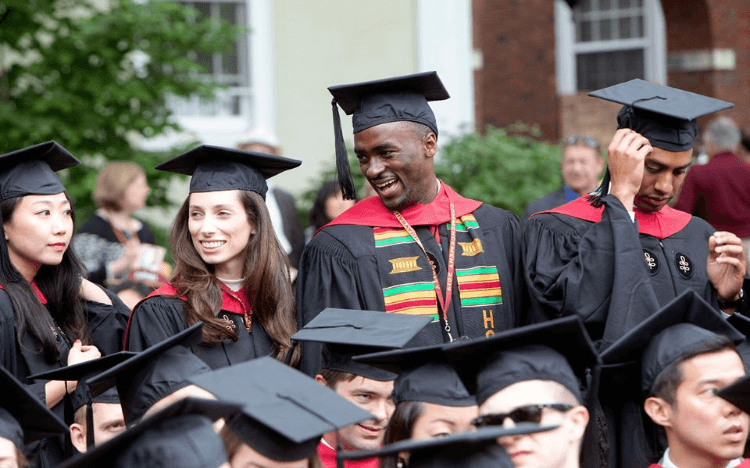- a
Harvard Business School Fellowship Designed To Promote MBA Jobs In Africa
Find out more about Harvard Business School’s GO:Africa fellowship, which supplements the income of MBA graduates who get jobs in Africa
(c) HBS Facebook - Harvard MBA students interested in working in Africa can benefit from the Go:Africa fellowship
Harvard Business School's Global Opportunity Fellowship (GO:Africa) supplements the income of MBA graduates who get jobs in Africa with a total compensation of less than $100,000 per year.
The rationale behind the fellowship is to support graduating students and alumni who are working in Africa, where salaries are typically lower than the MBA average.
Harvard's hope is that the
fellowship makes opportunities in Africa more accessible for its graduates, which the school has already seen in this first year with five GO: Africa fellows.
Supporting lower-paid MBA jobs
The fellowship is just one part of HBS’s commitment to career support. The school offers a variety of career support programs for eligible students who choose careers in which starting salaries are lower than those of typical MBAs.
Their aim is to not just push MBAs into high-paying industries in developed countries, but to help those interested in innovation, development and entrepreneurship to put the skills they’ve acquired to good use.
Tuyee Yeboah (MBA 2018), a native of Dallas, Texas, who grew up in Accra, will be the chief investment and integration officer at Peak Investment Capital after completing JPMorgan Chase’s post-MBA leadership development program in Dallas.
“I plan to be a part of fuelling the hope that currently exists, changing the narrative of a continent that has often been ridiculed, and helping Africa rise above the world’s expectations,” Tuyee says.
The value of African students
HBS believes that students from Africa add value to the course as a whole.
In HBS’s case method, diversity of perspective is key. Both within the curriculum and in their interaction with each other, students will be encountering viewpoints from outside their experience and enhancing their understanding and adaptability.
Because of the unique opportunities and dynamics on the African continent, students from Africa have a context that is likely very different from most of their peers at HBS. As a result, they bring an important voice and can help their fellow students understand an often unfamiliar region of the world.
Tafadzwa Samushonga graduated with an MBA from Harvard in 2018. She says: "There’s a role for us to play in putting our continent on the map, and getting people to understand who we are and what happens here. There are very real business opportunities here."
HBS’ Africa Research Center in Johannesburg, South Africa, helps the school to reflect business issues and create case studies relevant to Africa in the classroom.
Opportunities to explore African business
Interested MBA candidates are also offered the chance to explore business in Africa through an elective course, a student club and the annual Africa Business conference.
The MBA offers ample chance to explore business opportunities in Africa.
An elective short intensive program (SIP) called ‘Africa Rising: Understanding Business, Entrepreneurship, and the Complexities of a Continent’ runs in January.
The course is conducted by Professor Caroline Elkins and Nigerian entrepreneur Hakeem Belo-Osagie (HBS ‘80). Students also get the chance to meet and learn from African business, advisory, social enterprise and government leaders.
The Africa Business Club also hosts the annual Africa Business Conference. The theme of 2018's conference was ‘Africa Forward: Forging New Alliances for the Future’. The conference brings together 1,000+ people from the African continent and the diaspora for inspirational keynote sessions and interactive panel discussions.
Financial aid while studying
While admissions are based on merit, HBS financial aid is awarded based on demonstrated need, and is given free and clear with no repayment obligations. It's a significant leg up for students, as the average scholarship is about $40k per year.
On average almost half the class will be awarded some financial support and external funding options are also available. For African students from lower income backgrounds, this can make the difference for getting into the classroom.
This all comes back to driving diversity.
“[Having more African students] contributes to driving more diverse conversations and opening up your classmates’ minds in the same way they open up yours, about what is happening in the world,” says Tafadzwa.
Leave a comment.
